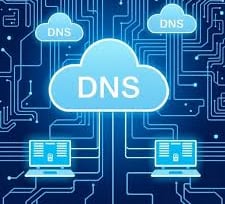Introduction
Think of the Domain Name System (DNS) as the internet’s phonebook, converting user-friendly domain names into IP addresses. If attackers hijack this system, they can send users to fake, malicious websites. Secure DNS ensures that these translations happen securely, preventing harmful redirections.
Abstract
Overview
Secure DNS is all about ensuring that the process of resolving domain names to IP addresses is safe. By implementing DNS security measures, you protect your network from attackers who might try to redirect your traffic to phishing sites or other malicious destinations. It’s a crucial defense against DNS spoofing and other attacks.
Secure DNS is a vital layer in protecting your network from malicious redirections and cyberattacks. In this blog, we’ll dive into how Secure DNS works and why it’s essential for safeguarding your online traffic from attackers looking to exploit DNS vulnerabilities.


[Disclaimer: This blog post is for informational purposes only and should not be construed as legal or financial advice. Organizations should consult with legal counsel and regulatory authorities to ensure compliance with reporting requirements.]
Mandatory
Given the rise in DNS-related attacks, securing your DNS is no longer optional—it's a must. Without secure DNS, your network is vulnerable to a range of attacks that can compromise sensitive data and harm your reputation.
Applicability
Secure DNS applies to every organization that relies on internet traffic—basically, everyone. It's particularly crucial for industries dealing with sensitive customer information, like finance, healthcare, and e-commerce.
Regulatory or Company Interest?
Regulatory standards, such as GDPR and PCI DSS, emphasize secure DNS to protect against unauthorized redirection and data breaches. Compliance requires secure internet traffic, which starts with DNS.
Key Guidelines
Use DNSSEC – Implement DNS Security Extensions to protect data integrity.
Monitor DNS logs – Regular monitoring helps detect any suspicious activity.
Choose a secure DNS provider – Ensure your DNS provider uses robust security protocols.


Key Implications
Without secure DNS, attackers could redirect users to phishing sites or malware-infested domains, leading to data breaches and significant financial loss.
Countries with Adoption or Influence
Countries like the US, UK, and Japan have already adopted DNS security measures as part of their broader cybersecurity frameworks to protect citizens and organizations from online threats.
International Frameworks Influenced
Global standards like NIST and ISO/IEC 27001 recommend secure DNS configurations to protect against cyberattacks that exploit vulnerabilities in the DNS system.
Regional and Industry-Specific Frameworks
Financial and healthcare sectors often require secure DNS as part of compliance with industry-specific regulations such as PCI DSS and HIPAA, where data integrity is paramount.
Secure Your Digital Identity with SecureKnots
Contact us to learn more about our cybersecurity services and ensure your organization meets cybersecurity requirements.


Conclusion
Secure DNS is an essential defense against cyber threats targeting the fundamental operations of the internet. By securing your DNS, you can avoid malicious redirections and ensure your network’s integrity. Don’t wait for a breach—implement secure DNS today.
How SecureKnots Can Help
SecureKnots is here to support you with expert guidance and services that enhance your DNS security:
VAPT (Vulnerability Assessment & Penetration Testing): We assess your DNS infrastructure for vulnerabilities, helping you identify weaknesses before attackers can exploit them.
Security Awareness Trainings: Educate your team on the risks associated with insecure DNS and how to recognize potential threats.
Ransomware Attack Simulations: Test how your DNS security holds up during real-world ransomware scenarios to ensure it’s resilient.
Phishing Simulations: Simulate phishing attacks targeting DNS weaknesses, ensuring that your defenses can block malicious traffic.
This blog focuses on the importance of securing employee access to internal systems while showcasing how SecureKnots can help organizations strengthen their access controls. It is informative and engaging, highlighting the significance of Secure DNS Let me know if you need further adjustments!
Thank you for your attention! If you have any inquiries about cybersecurity requirements or need expert guidance, please don't hesitate to contact SecureKnots.
This should wrap up the blog and fulfill the promise made in the previous one!
Secure DNS
The Domain Name System (DNS) is like the phonebook of the internet—it translates domain names into IP addresses. If attackers compromise your DNS, they can redirect your traffic to malicious sites. Secure DNS protects your network by ensuring that these translations are safe and legitimate. We'll show you how to set up DNS security to avoid this risk.
WITH OUR SHORT BLOGS
STAY UP TO DATE
Copy Rights @ 2023 SecureKnots. All Rights Reserved.
CONTACT US
Contact@Secureknots.com
USA
+1-302-601-2346
+1-302-608-6708
INDIA
080-31658865
GET IN TOUCH
